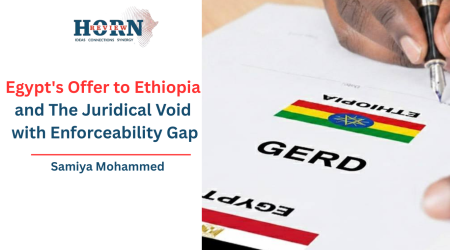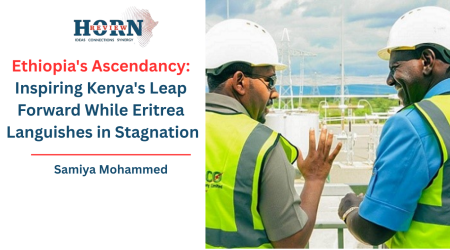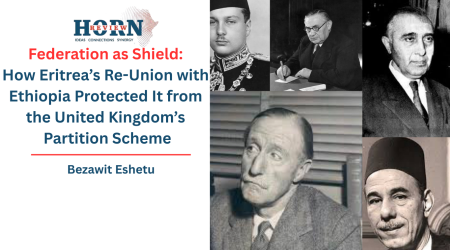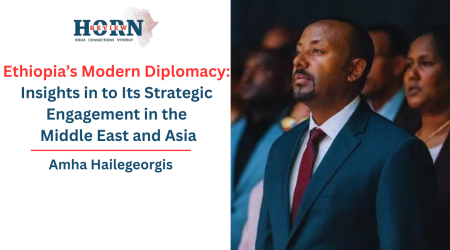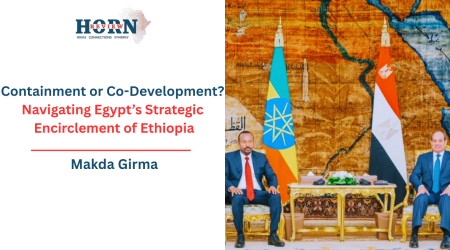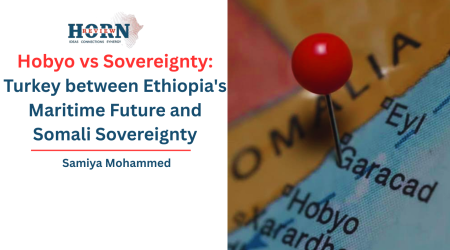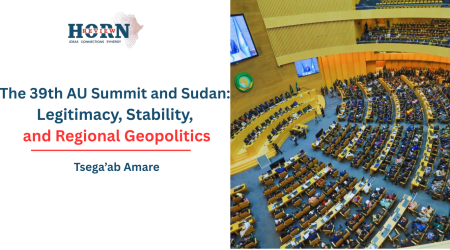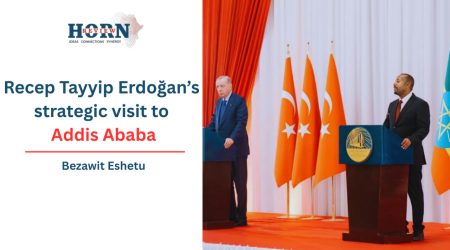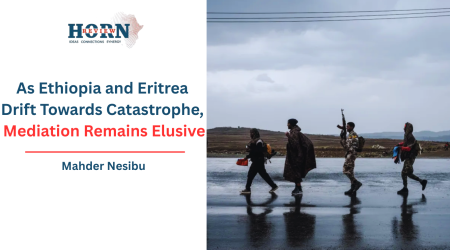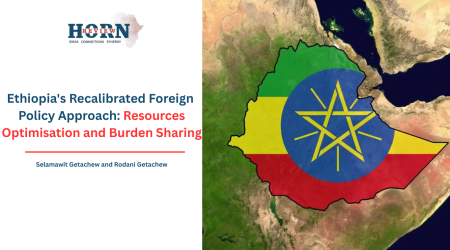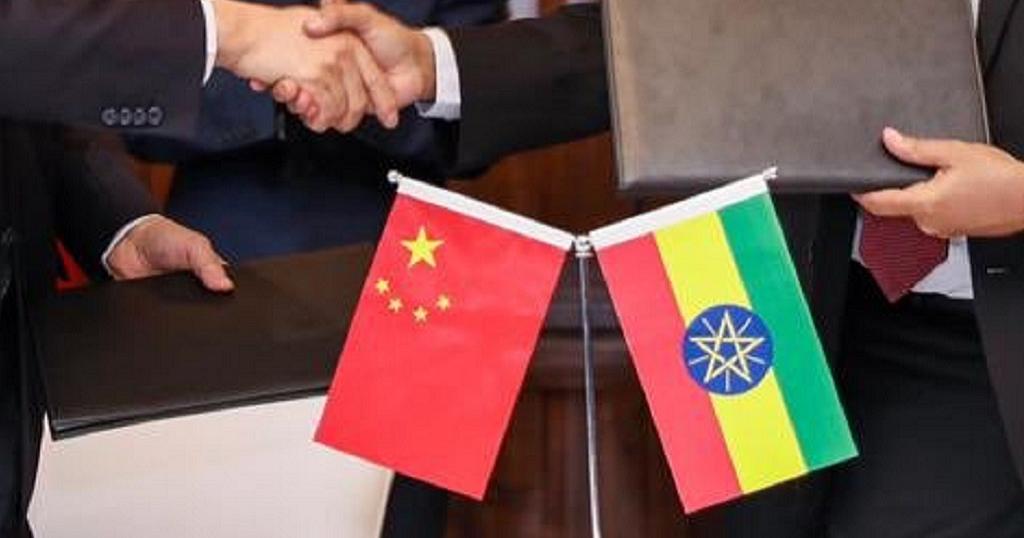
11
Aug
Ethiopia’s Sovereign Guardian Doctrine: Functional Lessons from China’s Wolf Warrior Statecraft
While often misunderstood or criticized by many actors, China’s so-called ‘Wolf Warrior Diplomacy’ (zhàn láng wàijiāo) has succeeded in asserting national sovereignty, countering narrative asymmetries, and redefining global diplomatic norms. It has become the shorthand expression for a new, assertive brand of Chinese diplomacy.
At its core, it signifies a functional shift: a deliberate, systematic effort to assert national sovereignty decisively, counter pervasive narrative imbalances, and reshape the diplomatic playing field on its own terms. Criticisms frequently overlook its tangible successes in defending core interests and shifting global discourse. Ethiopia, navigating a region far more unstable and fragmented than China’s strategic environment, finds profound functional lessons in this approach. The “Sovereign Guardian” doctrine is Ethiopia’s answer, a practical adaptation of China’s core functions. It projects unambiguous clarity, demonstrate unyielding resilience, and mount a non-negotiable defense of vital national interests through calibrated, assertive means. This is not about bluster; it is about survival and securing Ethiopia’s rightful place supplementing soft diplomacy.
China’s model demonstrates key functions crucial for Ethiopia. First, it masters narrative command. Facing consistent external criticism, China rapidly deploys data-driven counter-narratives, saturates information channels, and frames issues on its own terms. It refuses to let accusations stand unanswered. Second, it wields economic leverage strategically. Trade, investment, and market access become tools for reward and deterrence, signaling consequences for actions threatening core interests. Third, it empowers specialized envoys with clear mandates and high-level backing, enabling focused, persistent diplomacy on specific critical issues. Finally, it utilizes international law and forums proactively, not just defensively, to assert rights, isolate detractors, and build coalitions. Ethiopia’s Sovereign Guardian adapts these functions into a uniquely Ethiopian framework, designed for a Horn of Africa where fragility is exploited and red lines are frequently tested.
Territorial Integrity under Siege
Ethiopia’s borders are not theoretical lines; they are zones of constant pressure and violation, demanding immediate, robust responses. Eritrean forces remain active along the shared border, long after the Pretoria Agreement demanded their withdrawal, undermining stability and sovereignty. Reportedly in the west, Murle fighters from South Sudan have repeatedly crossed into Ethiopia’s Gambella Region, provoking killings, abductions and mass displacement. In the northwest, Sudan, under General al-Burhan, continues its military encroachment into the fertile Al-Fashaga triangle, a blatant violation exploiting periods of internal Ethiopian focus. To the east, the threat is multifaceted. Somalia’s government, swayed by Egyptian influence and internal pressures, exhibits deep reluctance and hostility towards Ethiopia’s legitimate quest for maritime access, directly impacting Ethiopian security. Simultaneously, the specter of Al-Shabab looms large evidenced in its recent advancements near the capital exploiting regional disagreements. All of the above patterns paint a picture of a nation whose territorial red lines are perceived as permeable. Passivity invites further encroachment.
Here, China’s rapid-response information machinery offers a vital template. Ethiopia must establish a dedicated “Border Integrity Unit” within the Ministry of Foreign Affairs. This unit would function like a diplomatic rapid reaction force. When an incident occurs, the unit immediately releases verified, multilingual incident reports. These aren’t vague protests; they include geospatial data, timestamped imagery, and credible witness accounts, disseminated through official channels to the AU, UN, IGAD, and key global capitals within hours. Silence is the enemy; facts are the shield. Complementing this, Ethiopia needs a high-profile “Regional Security Envoy.” This envoy, reporting directly to the Prime Minister, wouldn’t wait for crises. They would engage in constant, proactive shuttle diplomacy. Reinforcing Ethiopia’s ‘Horn First’ policy, meeting counterparts in Asmara, Khartoum, Mogadishu, and Djibouti, the envoy delivers clear messages. It reaffirms Ethiopia’s red lines, addresses legitimate grievances transparently where they exist, warns of consequences for violations, and seeks practical de-escalation mechanisms before clashes erupt.
In this regard institutionalizing the record is essential. Quarterly “Border Integrity Reports,” presented formally at the AU Peace and Security Council and relevant UN bodies, systematically document every incident, Ethiopia’s responses, and the lack of corrective action. This transforms sporadic complaints into an undeniable, institutionalized ledger of defiance against Ethiopian sovereignty.
Sovereignty is Non-Negotiable: Defending the GERD
Just as uncontrolled border incursions erode Ethiopia’s physical sovereignty, unmanaged narratives about GERD jeopardize its developmental sovereignty. The dam stands as a monument to Ethiopian development and sovereign right. Its recent completion announcement, however, has triggered a predictable wave of renewed pressure from various actors. Egypt, despite the irreversible reality of the dam, intensifies its campaign to internationalize the dispute. Cairo actively lobbies powerful states and institutions, seeking external pressure to force concessions, painting Ethiopia as unreasonable while ignoring its own historical water monopolization. Now that global pressure on the GERD is high, Ethiopia cannot afford to be reactive or defensive. It must run focused campaigns and events to highlight the dam’s regional benefits and protect its reputation. Concurrently, Addis Ababa should work closely with upstream neighbors to block Egypt’s diplomatic maneuvers.
China’s approach to managing complex, contested narratives offers a powerful practical model. During COVID-19, Beijing utilized curated data rooms and targeted diplomatic briefings to control the narrative flow. Ethiopia must launch a comprehensive “Nile Solidarity Initiative,” anchored by a publicly accessible, real-time “GERD Data Hub.” Managed by respected Ethiopian hydrologists and engineers (with potential for independent international verification protocols), this platform would provide live data on dam operations, reservoir levels, turbine output, and comprehensive environmental impact assessments. It would transparently showcase the benefits: improved downstream river flow regulation and the vast potential for regional power interconnection. Transparency, on Ethiopia’s terms, disarms misinformation. To counter Egypt’s obstructionism effectively, Ethiopia needs more than words; it needs leverage.
The Lifeline to the Sea: Asserting Maritime Destiny
Landlockedness is an existential economic and strategic vulnerability for Ethiopia. Its quest for guaranteed, diversified sovereign maritime access is not expansionism; it is an imperative for survival and growth. Recent efforts, however, face fierce headwinds.
Therefore, Addis Ababa must treat maritime access as a non-negotiable red line, refusing to accept any diplomatic setback or security threat that undermines its port arrangements. To defend this, Ethiopia should diversify its agreements across multiple coastal partners, institutionalize a high-level Maritime Access Taskforce empowered to escalate violations, and engage proactively in regional security forums to ensure collective guarantees of sea access.
For the Sovereign Guardian to resonate consistently, it requires deep institutional roots and public understanding. A “National Sovereignty Council” (NSC) must be established. Its core membership should integrate the Ministers of Foreign Affairs, Defense, Water and Energy, and heads of relevant intelligence and security services.
Finally, the Sovereign Guardian doctrine rests on three interlocking pillars. These are; rapid-response narrative and evidence deployment, strategic diplomatic outreach through empowered envoys, and institutional cohesion via a standing National Sovereignty Council and it demands action now. Every day that Eritrean patrols, Sudanese incursions, or misleading GERD narratives go unchallenged chips away at Ethiopia’s hard‐won gains. Commissioning the Border Integrity Unit, launching the GERD Data Hub, appointing a Regional Security Envoy, and convening the NSC is crucial. By doing this, Addis Ababa will not merely signal resolve, it will concretely defend its territorial, developmental, and economic lifelines. Delay risks emboldening detractors; immediacy secures Ethiopia’s rightful place as a sovereign actor on its own terms.
By Yonas Yizezew, Researcher, Horn Review
References
- Martin, P. (2021). Understanding Chinese “Wolf Warrior Diplomacy” [Interview by J. Nawrotkiewicz]. National Bureau of Asian Research.
- Liu, K. (2024). China’s wolf warrior diplomacy (narrative): Development, causes and political effects. Diplomatica, 6(1), 71–99.
- Soliman, A., & Lannaud, E. (2024). Securitizing the Ethiopia–Sudan border: How cross-border conflict is shaping trade and the control of land. Chatham House.
- Security Council Report. (2025). Somalia: April 2025 monthly forecast. Security Council Report.
- Ethio Negari. (2025). South Sudanese militants attack Ethiopian border village [News article]. Ethio Negari.

